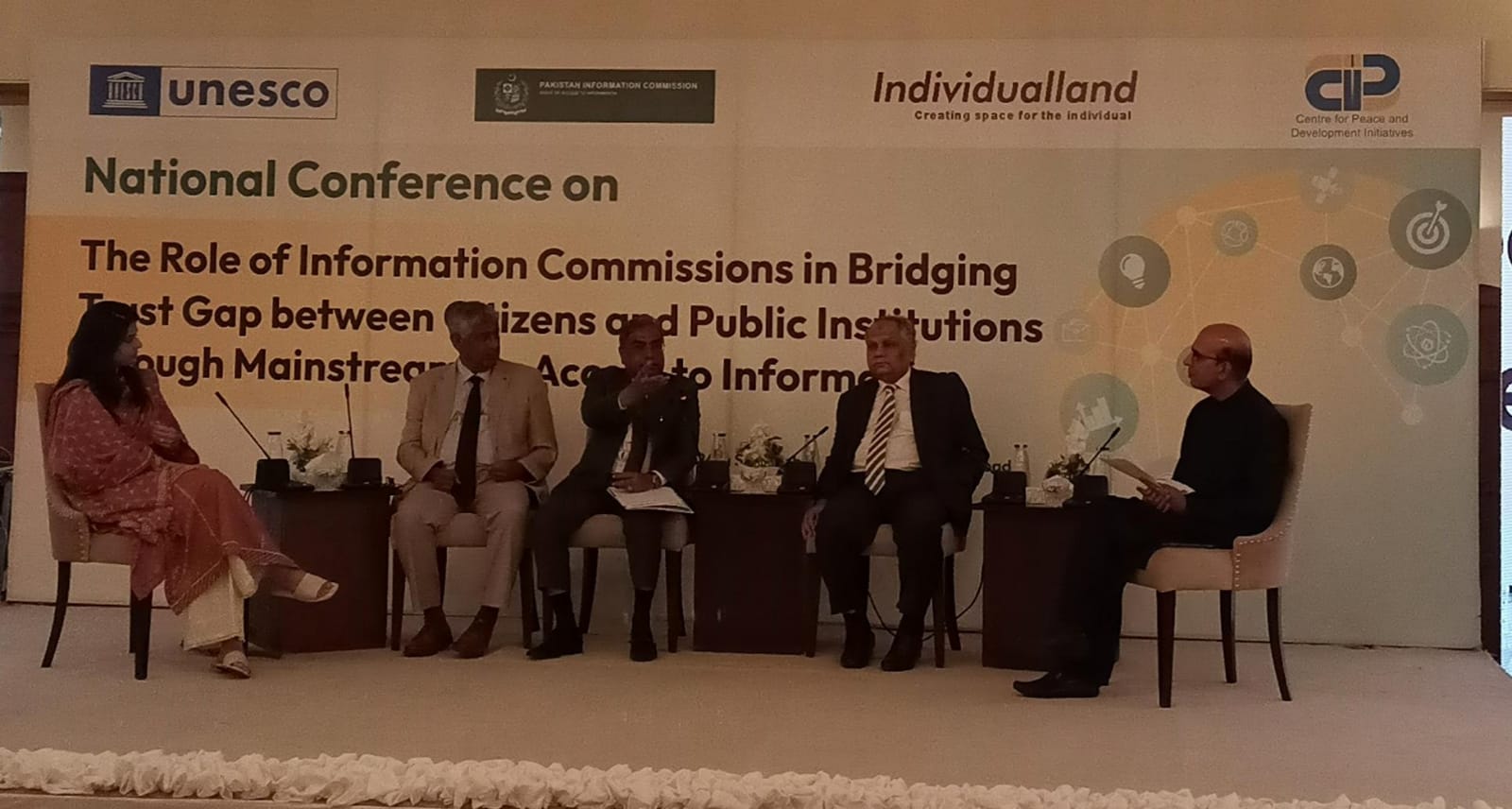By: Kashif Nawab
Access to information is a fundamental right essential for the functioning of democratic societies. On September 28, the world observes the International Day for Universal Access to Information (IDUAI), underscoring the role of transparency in governance and the importance of public participation. In Pakistan, where democracy has often shifted between civilian and military rule, access to information remains a contentious issue. However, recent legislative advances, such as Right to Information (RTI) laws, indicate a growing commitment to transparency, despite significant obstacles like political instability, corruption, and security concerns.
This article examines the relevance of IDUAI in Pakistan, the country’s journey in developing its access to information laws, and the challenges that still need to be addressed for greater transparency and accountability.
The Global Significance of IDUAI:
Initiated by UNESCO in 2015, the International Day for Universal Access to Information recognizes that information access is vital for democratic governance, citizen empowerment, and accountability. It plays a key role in enabling individuals to make informed decisions, scrutinize those in power, and engage in the democratic process.
For developing countries like Pakistan, IDUAI highlights the necessity of bolstering information-sharing mechanisms essential for effective policy-making. In Pakistan’s case, access to information not only promotes transparency but also contributes to development efforts, combats corruption, and helps address critical issues such as climate change, education, healthcare, and security.
Legal Framework for Access to Information in Pakistan:
Pakistan has made notable strides in creating a legal framework for the right to information. In 2002, the country introduced its first Freedom of Information Ordinance, marking a significant step in providing citizens access to official information. However, the ordinance had several limitations, including ambiguous language, broad exemptions, and weak enforcement.
Subsequent developments led to more comprehensive RTI laws. In 2013, Khyber Pakhtunkhwa (KP) and Punjab enacted their own RTI legislation, followed by Sindh’s Transparency and Right to Information Act in 2016, and Balochistan’s Freedom of Information Act in 2005. In 2017, Pakistan passed the federal Right of Access to Information Act, replacing the 2002 ordinance.
These laws oblige public institutions to proactively disclose information and respond to requests from citizens. The creation of independent information commissions in various provinces has been a positive development, tasked with ensuring adherence to RTI laws and addressing complaints.
Challenges in Implementing Access to Information in Pakistan:
Despite improvements in the legal framework, the implementation of RTI laws in Pakistan faces numerous challenges.
Lack of Public Awareness:
One of the primary hurdles is the lack of awareness among citizens about their right to access information. Many people, particularly in rural and marginalized areas, remain uninformed about the existence of RTI laws. The government has not launched adequate mass awareness campaigns to educate the public, resulting in low usage of these laws.
Institutional Resistance:
Public officials often resist disclosing information, perceiving it as a threat to their authority. The culture of secrecy within Pakistan’s bureaucracy makes it difficult to implement RTI laws effectively. Public institutions are frequently slow to respond to requests, often citing vague reasons such as national security, which undermines the efficacy of these laws.
Overlapping Legislation:
The presence of laws like the colonial-era Official Secrets Act further complicates access to information. Public bodies often invoke national security as a reason to withhold data, even when it concerns governance and public resources. The lack of clarity in defining sensitive information exacerbates this issue.
Resource Constraints:
Information commissions, charged with enforcing RTI laws, face significant challenges such as inadequate staffing, lack of training, and limited resources. These constraints hinder their ability to process information requests promptly, reducing the overall effectiveness of the system.
Corruption and Political Influence:
Corruption poses a significant obstacle to information access in Pakistan. Public officials sometimes resist sharing information to cover up corrupt activities, while political interference in bureaucracy further stifles transparency.
Digital Divide:
The growing reliance on digital platforms for information dissemination is hampered by Pakistan’s digital divide. While urban areas are increasingly connected, rural regions often lack internet access and digital literacy, limiting the potential of transparency initiatives.
Climate Change and the Role of Information:
As a country highly vulnerable to climate change, Pakistan requires timely and accurate information for both policy-making and community resilience. Ranked among the top 10 countries most affected by climate change, Pakistan faces environmental challenges such as extreme weather, flooding, and water shortages. Access to information on climate policies, disaster preparedness, and resource management is crucial for public awareness and informed decision-making.
Civil society organizations and environmental groups are increasingly using RTI laws to request information related to environmental protection and climate change initiatives. However, bureaucratic hurdles and institutional capacity limitations continue to restrict access to this vital information.
The Role of Media and Civil Society:
The media plays a critical role in promoting access to information by investigating and reporting on governance, corruption, and public policies. However, in Pakistan, journalists face significant risks, including censorship, harassment, and threats when covering sensitive topics. Despite these challenges, investigative journalism has uncovered corruption and human rights violations, contributing to greater public awareness. Social media platforms like Twitter and Facebook have also emerged as tools for information-sharing and demanding government accountability.
Civil society organizations have been pivotal in raising awareness of RTI laws and supporting citizens in filing information requests. These organizations act as watchdogs, monitoring government activities and advocating for reforms to improve transparency.
Conclusion: Moving Forward
The International Day for Universal Access to Information serves as a reminder of the importance of transparency in governance. While Pakistan has made significant progress in enacting RTI laws, much work remains in ensuring their effective implementation. Public awareness campaigns, stronger enforcement of RTI laws, and improved institutional capacity are essential for achieving meaningful transparency.
Access to information is not only a matter of governance but also a fundamental right that empowers citizens, strengthens democracy, and promotes sustainable development in Pakistan.


